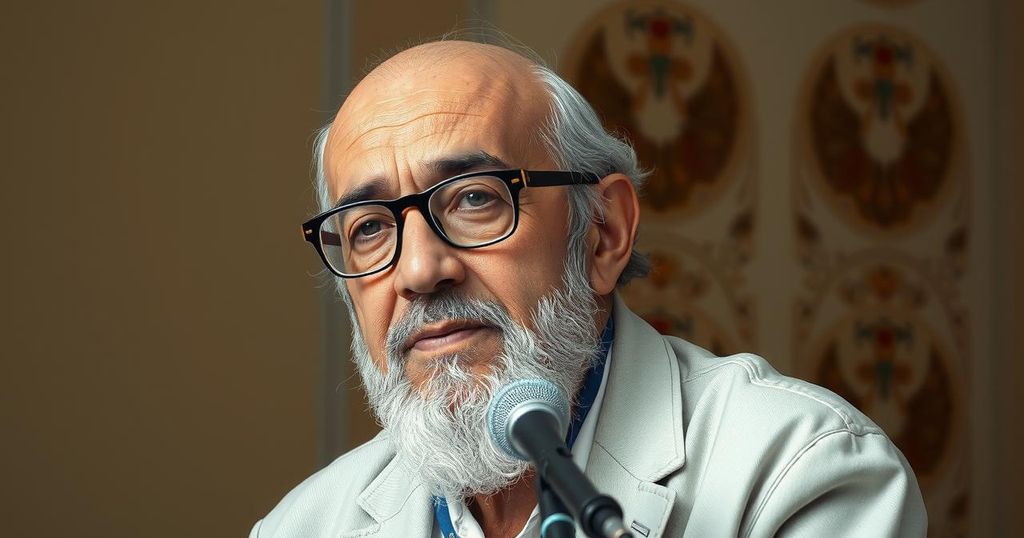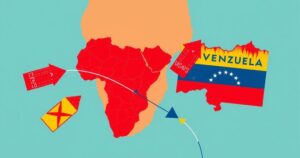In Memory of Professor Mohamed Ibrahim Khalil: A Legacy of Integrity and Justice

This article is a tribute to Professor Mohamed Ibrahim Khalil, reflecting on his impactful career and personal relationship with the author. Khalil’s roles included serving as the first Sudanese Dean of the Faculty of Law, Attorney General, and Chairperson of the Referendum Commission for South Sudan’s independence. The author shares cherished memories and highlights Khalil’s integrity, contributions to Sudanese politics, and lasting legacy of justice, while dispelling misconceptions about his political stance.
The passing of Professor Mohamed Ibrahim Khalil on December 10, 2024, left a profound emotional impact on those who knew him. As a revered colleague and friend, his legacy is characterized by remarkable achievements both nationally and internationally. Khalil’s distinguished career included serving as the first Sudanese Dean of the Faculty of Law at Khartoum University, Attorney General, Minister of Justice, and Chairperson of the Referendum Commission that facilitated South Sudan’s independence in 2011.
Khalil also held international roles that showcased his legal expertise, including advocating for democracy and peace in Sudan. His commitment to education was reflected in his teaching endeavors at various institutions, notably while he served as a senior fellow at the Woodrow Wilson International Center for Scholars and the United States Institute of Peace. This tribute derives from my personal recollections of him during our years together, particularly emphasizing his influence in my life as a student and colleague.
In my experience as a student at Khartoum University, I was deeply moved by his humility and professionalism. Professor Khalil always presented himself with dignity and respect, dressed impeccably, and interacted with his students with a graceful demeanor. He played a pivotal role in my life when he personally referred me to an ophthalmologist who diagnosed a long-standing illness—a kindness that significantly altered my personal and professional trajectory.
Our relationship grew during our time in Washington, D.C., where we both navigated the political landscape and engaged in discussions aimed at enhancing peace in Sudan. I remember our conversations about the political situation in Sudan, particularly his candid criticisms of the ruling Umma Party and his aspirations for a unified country through the referendum process. Despite the challenges surrounding the referendum, he demonstrated remarkable integrity by overseeing it objectively, ensuring it aligned with the principles of justice.
A notable experience that highlighted Professor Khalil’s character occurred during a meeting I attended at the Carter Center, which he humorously commented upon regarding perceptions of my political stance. His wit and wisdom shone through even in challenging discussions, showcasing his commitment to open dialogue and principled action.
His legacy is often clouded by the misconception that he advocated for the secession of South Sudan. In reality, he attributed the secession to the broader political failures of the ruling parties, emphasizing their detrimental impact on national unity. With unwavering integrity, he accepted the challenges he faced and guided the referendum process judiciously.
In closing, we should reflect on Professor Khalil’s profound contributions and the lessons he imparted throughout his life. His legacy remains intertwined with the lives of his family, friends, and colleagues who cherish his memory and strive to emulate his noble intentions. As he profoundly influenced countless individuals during his lifetime, we celebrate his spirit and contributions, recognizing that he will continue to inspire future generations in our shared pursuit of justice and peace.
The article reflects on the life and contributions of Professor Mohamed Ibrahim Khalil, focusing on his professional achievements and personal relationships, particularly with the author. Khalil’s career spanned various significant positions that impacted Sudan’s political and legal landscape, including his role in the independence of South Sudan. The author recounts their experiences as a student and later as a colleague, emphasizing Khalil’s integrity and dedication to justice. The tribute aims to honor Khalil’s multifaceted legacy while addressing misconceptions about his political positions.
Professor Mohamed Ibrahim Khalil’s life and contributions serve as a testament to his unwavering commitment to justice and integrity. His career marked significant achievements in Sudan’s legal and political arenas, notably in his role during the referendum for South Sudan’s independence. The reflections shared highlight his character, the profound influence he had on his students and colleagues, and the enduring legacy he leaves behind, which will continue to inspire generations. As we honor him, we recognize the importance of his memory and the principles he championed throughout his life.
Original Source: sudantribune.com








